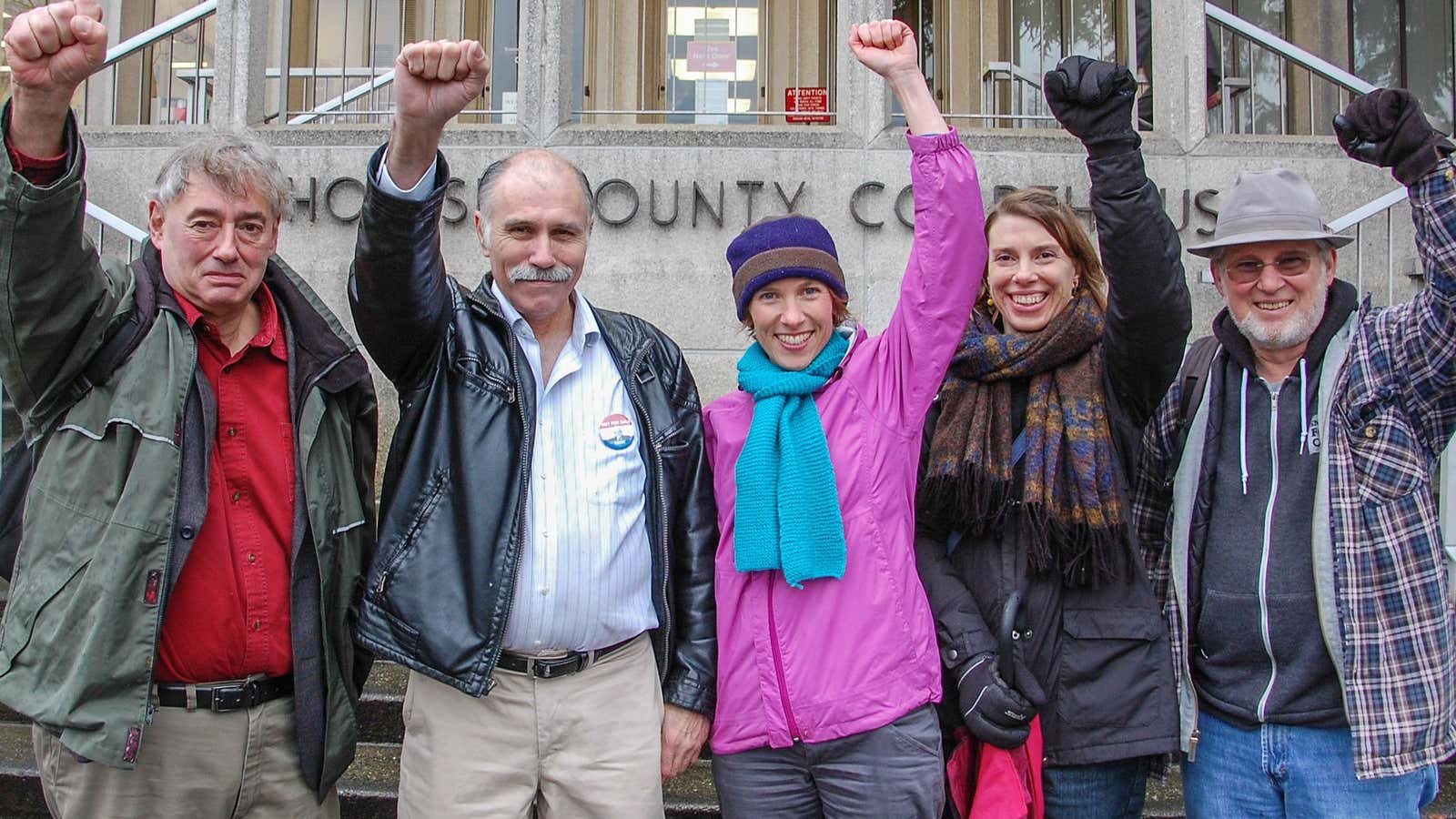A jury in Washington state is hearing the final arguments today (Jan. 14) in a huge case for the environmental movement. Five activists have been charged with criminal trespassing for blocking a train full of crude oil.
The judge initially allowed the so-called “Delta Five” to use a so-called “necessity defense,” which argued that their criminal actions were justified by the threat of climate change. It is the first such case in the United States, and environmentalists were hoping for a precedent-setting breakthrough.
However, in a last-minute decision, the judge instructed the jury not to take the “necessity defense” argument into consideration, seriously undermining their prospects.
Before the trial, the protesters asked in a statement that their views be seen as a “reasonable act of conscience” that was “necessitated by the extreme nature of the emergency.”
The “Delta Five” group includes a middle school teacher, a coffee shop owner, and a professional activist. They constructed a massive, 18-foot tripod in front of a parked oil train in Everrett, Washington in September 2014 to block oil trains passing through the state. They were arrested and charged with criminal trespassing and obstructing a train.
The train was carrying Bakken shale oil from Montana and North Dakota—a highly explosive substance, which killed 47 people in an explosion after a train derailed in Quebec in 2013. Washington state officials are considering six new oil transport facilities to make the region a bigger player in fossil fuel transport.
The protest was specifically designed to set a precedent for civil disobedience cases related to the environmental movement, according to activist Tim DeChristopher. In an interview with the Guardian, he compared the legal tactic to the similar efforts by the civil rights and women’s suffrage movements.

The necessity defense was successfully used in a UK case in 2008 when six Greenpeace activists were acquitted of criminal damage to a coal-fueled power station. In the US, the defense can only be mounted if the defendants have exhausted all legal alternatives of political persuasion, as the protesters’ attorney explained to the Guardian.
The “Delta Five” trial marks yet another case in the United States in which the “necessity defense” has failed. DeChristopher was involved in two himself, serving 21 months in prison after he unsuccessfully tried to use the argument. He, and many others in the climate movement, were hoping this one would pan out.
“Effort after effort to control climate-twisting fossil fuel pollution has failed, globally, nationally and in my own state,” Patrick Mazza, one of the “Delta Five,” said in a statement. “There came a point where I could no longer sit back and wait for the politicians to act.”
During the trial, which started Jan. 11, the activists and their defense team called several expert witnesses, including a climate science professor, an oil train safety expert, and a doctor to speak about the health implications for people living in areas where oil is transported by tankers.
“There is nothing in our history, our living memory, or our genes to prepare us for the effects of climate change that we have already created through the burning of fossil fuels,” said Richard Gammon, professor emeritus at the University of Washington. during his testimony on Wednesday.
